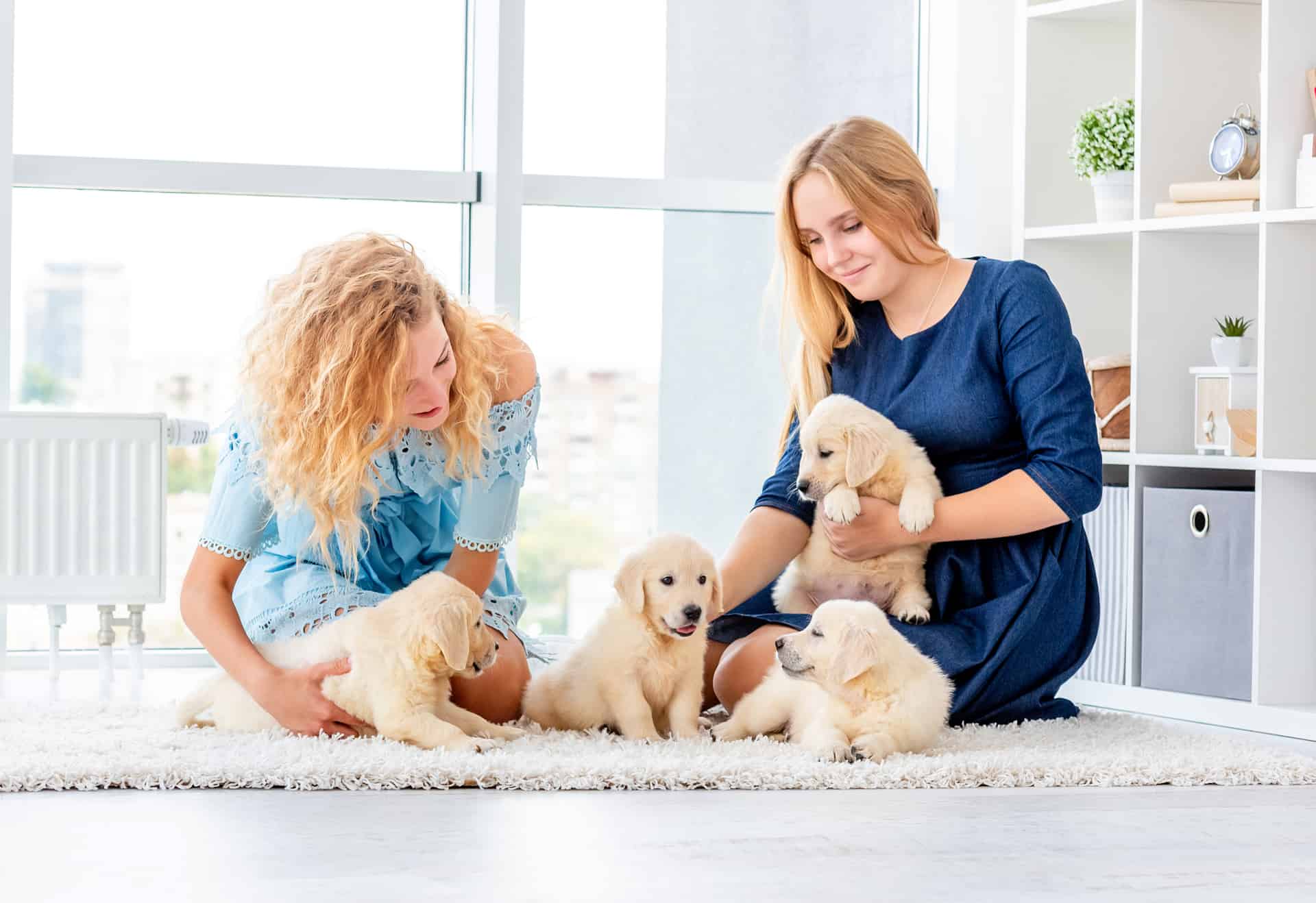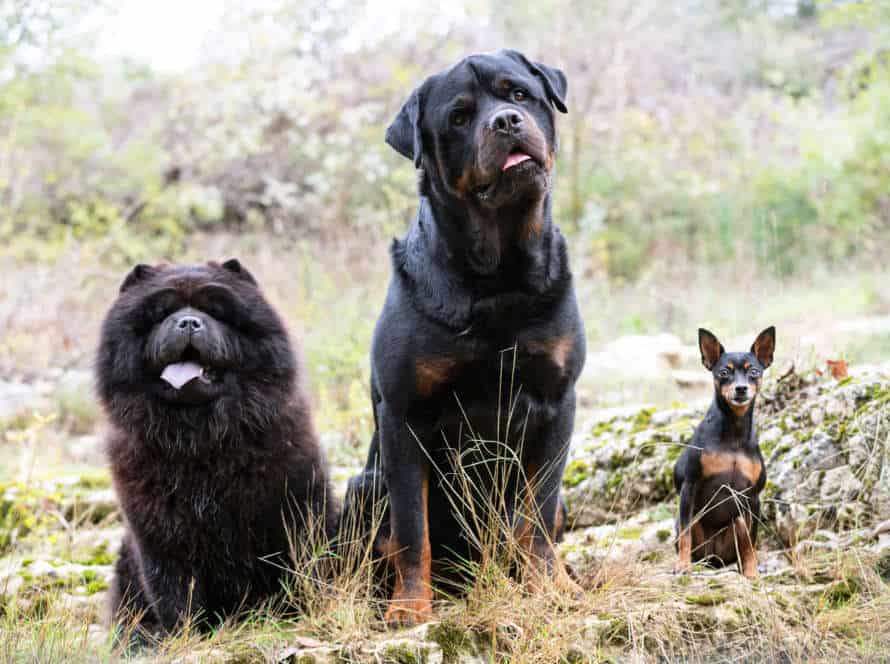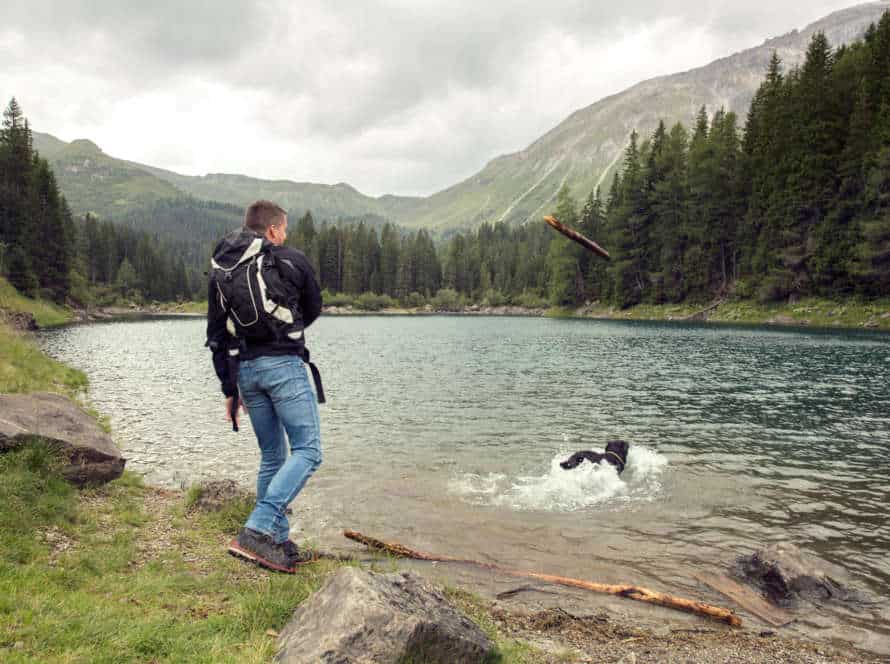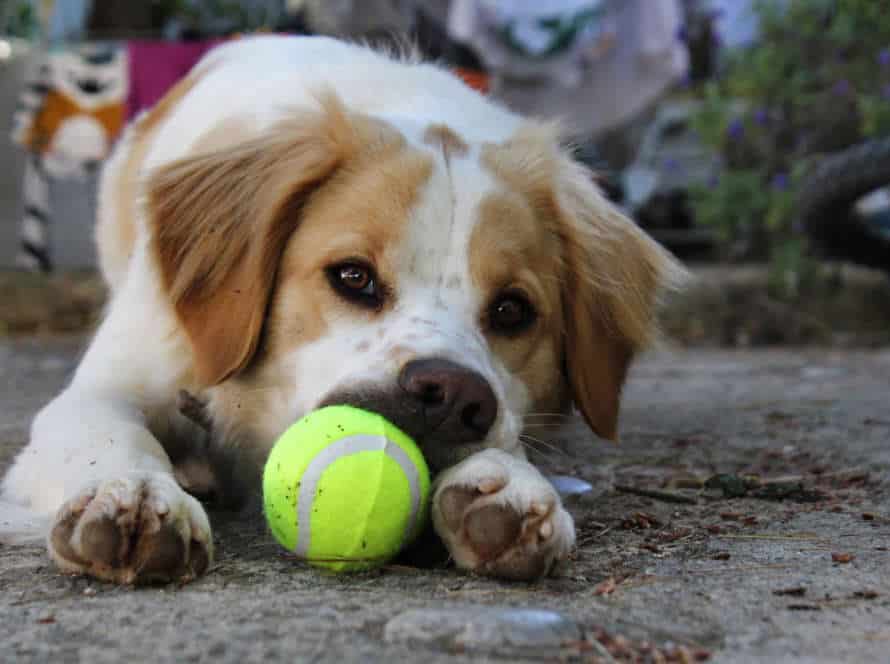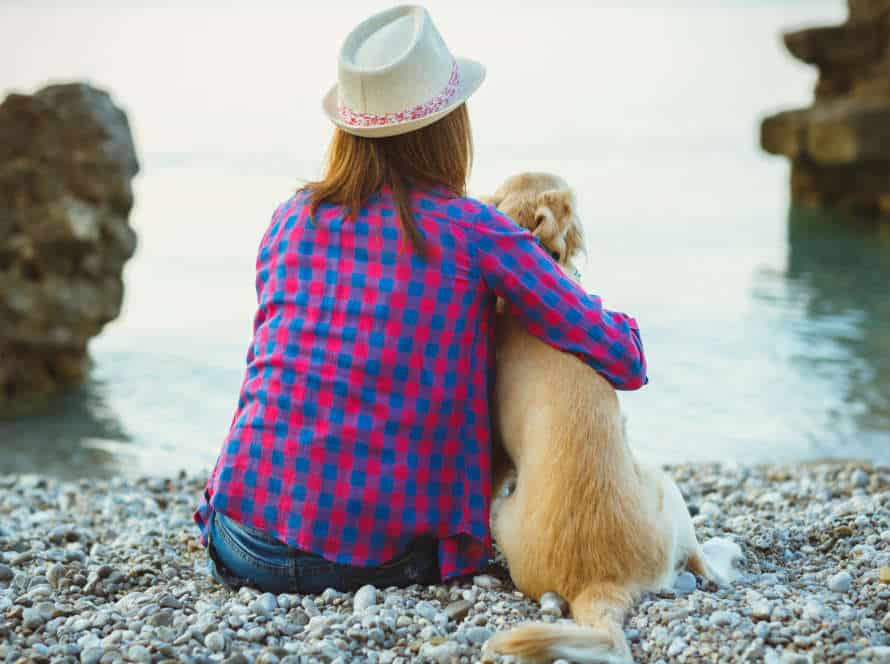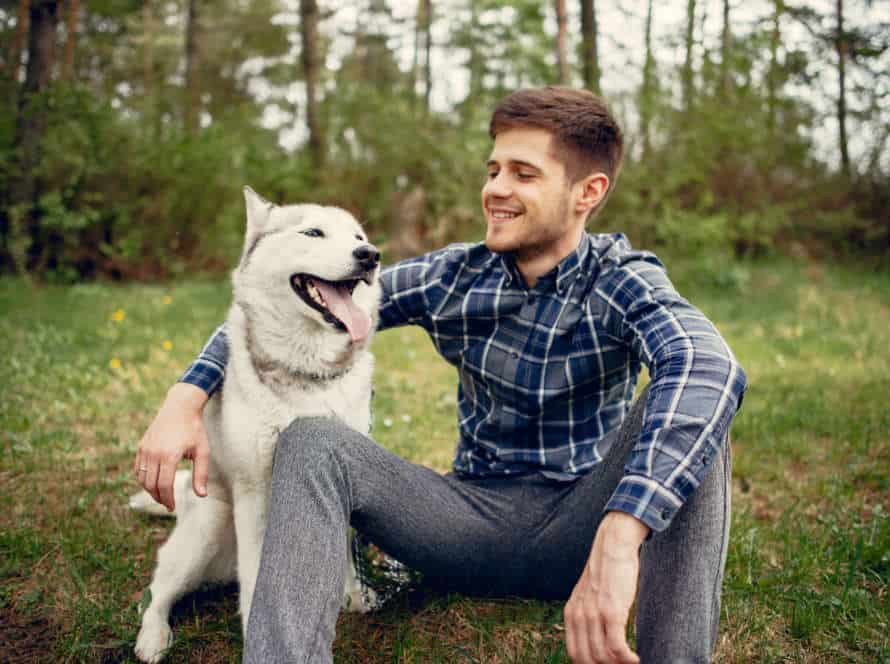Why Your Puppy Needs Socialization Now
Socialization is super important for puppy development. It needs to start now! A well-socialized pup will be confident and able to adjust to new places and things. Here’s why:
- If they aren’t socialized early, they may grow up to be scared or aggressive. That makes it harder and more expensive to fix later.
- Socializing helps build a good bond between the pup and their owner. It also helps with behavior problems like barking, chewing and digging.
- Socializing should be done in a safe way. Expose them to new people, animals and environments. Vaccinations and following quarantine laws are also part of socializing.
- Get started now so your pup can be relaxed in new situations. Pro Tip: Take them on dog walks with other vaccinated dogs – it will help build confidence.
Understanding Puppy Socialization
Socializing is essential for a content and healthy pup. Properly socialized puppies become more assured and have an easier time adapting to new environments. We should know why and how to properly socialize a pup; this can have a major impact on their development.
Let’s explore the fundamentals of puppy socialization.
What is Puppy Socialization?
Puppy socialization is all about introducing pups to new places, sounds, smells and people. It’s important to do it in the first 3-4 months of a pup’s life, as it sets the foundation for their personality as adults. Here are some benefits:
- Confidence boost and less fear
- Easier adapting in new situations
- Prevents aggression and biting
- Strengthens the bond with owners
- Improves health.
As an owner, start socializing early and gradually expose your pup to different people, animals and environments. Professional help such as puppy training classes, playdates or supervised experiences is recommended. Pro tip: Ask a dog trainer or vet to make a tailored plan for your pup.
Why is Puppy Socialization Important?
Puppy socialization is key for your pup’s emotional and behavioral wellbeing, especially during their formative stages.
Socialization teaches your pooch new experiences, environments, people, and other animals. This builds vital social skills and adaptability.
Without socialization, puppies can become fearful, anxious, or aggressive. This makes it hard for them to connect with their environment and other pets.
Socialization should start from 3-8 weeks and go on until 12-14 weeks. This is a critical period in a puppy’s life. It’s also important to keep socializing your pup after 14 weeks, at least until 6 months.
Good socialization gives you a happy, curious, and confident pup. They’ll be a real pleasure to be around!
When should You start Puppy Socialization?
Puppy socialization should start as early as possible – between 3 and 14 weeks of age. This is a critical period, when puppies are most open to learning about their environment, other animals, and people. Doing this properly can help stop behaviours such as aggression, fear and anxiety in later life.
Expose your puppy to various people, animals, sounds and activities in a positive, controlled way. Pups should meet other vaccinated dogs, as well as people of different ages, genders and ethnicities. Positive reinforcement training should be used for teaching basic commands, etiquette and obedience.
Remember, early socialization is important for a happy and healthy dog. Pro Tip: Get advice from an expert dog trainer or behaviourist to make the most of your puppy’s socialization and training.
How to Socialize Your Puppy
Socializing puppies is key for their growth. They must learn how to get along with other animals, people, and the environment. This will make them more secure and easier to train. Here’s a look at how to socialize your pup:
Enroll Your Puppy in a Socialization Class
Getting your pup into a socialization class is essential for them to grow up to be a friendly, confident pooch. These classes are designed to introduce your pup to different people, animals, and surroundings in a safe and positive way . Here’s why they need it:
- Learning to interact and communicate with other dogs and humans in a proper manner.
- Building self-confidence and reducing fear and anxiety.
- Improving behavior and reducing the risk of aggression.
- Becoming an adaptable adult dog.
When enrolling your pup in a class, make sure to check for a dependable trainer, ask for references and keep the session enjoyable. Also, keep an eye on your pup’s behavior and body language.
Introduce Your Puppy to Different People
Introducing your pup to different people? It’s essential! Socializing your furry pal helps them learn how to interact with different personalities and people. Here are some tips:
- Start easy – begin with close friends and family that are calm and gentle. Gradually work up to more people and environments.
- Positive reinforcement – treat, praise and pet your pup when they have a positive interaction. Avoid punishment or scolding.
- Encourage interaction – gently expose your pup to new people. Play games, give treats and enjoy playtime together.
Remember, socializing your pup is important for avoiding aggressive or fearful behavior as they grow up. A well-socialized pup will be more confident and better-behaved as an adult dog. Pro tip: Get started early! The sooner you start, the more comfortable your pup will be around strangers.
Expose Your Puppy to Different Environments
It is essential to expose your pup to various settings for socialization and overall growth. Socialization is introducing your pup to people, environments, and stimuli to make sure they are a well-adjusted adult dog. Here are some essential points to remember when socializing your pup:
- Start young: Puppies are most open to socialization between 3-14 weeks.
- Introduce slowly: Introduce your puppy to new places in a managed way.
- Positive reinforcement: Use treats or toys to reward your pup for good behavior around new things.
- Consistency: Keep on socializing your pup throughout their first year of life to get an adjusted adult dog.
Not socializing your pup can lead to behavioral problems such as fear and aggression towards other dogs, people, and new surroundings. Pro Tip: Sign up your pup for a puppy class or get advice from a professional dog trainer to make sure proper socialization techniques are used.
Common Mistakes to Avoid during Puppy Socialization
Pups need to be socialized for them to become confident and balanced dogs. But, socializing pups has its difficulties. Here we’ll list some typical blunders people make when socializing their pups and how to dodge them.
Overexposing Your Puppy to New Experiences
Exposing your pup to too many new experiences can be overwhelming and bad for their socialization. Here is why socializing your pup is essential and how to prevent typical mistakes during the process.
Puppy socialization is key for their growth and progress. It allows them to experience new people, animals, sights, sounds, and smells which helps them learn and handle their environment.
Exposing your pup to too much too quickly can cause uneasiness, terror, stress, and even aggression. This makes it hard for them to learn and cope with new situations.
Rather, introduce your pup to new things bit by bit, using encouragement and rewards such as treats, toys, and compliments to link positive experiences with socialization.
Remember to take your pup’s age, character, and current behavior into account, and do not push them into situations they are uneasy with.
By socializing your puppy in a beneficial and gradual way, you are setting them up for a confident and well-adjusted life, ready to face any challenge that comes their way.
Ignoring Warning Signs
Failing to notice warning signs during puppy socialization can be damaging to their development. It is important to identify and handle any fear or aggression. Mistakes to dodge include:
- Socializing too late: This can make it harder for your pup to adjust to novel scenarios and people.
- Overwhelm the pup: Too much at one time can cause distress and bad memories.
- Ignore the warnings: Barking, growling and hiding are all signs they are not comfortable, so take them away.
- Don’t forget to make it a positive experience: Treats, rewards and games will encourage good memories.
Socializing a pup correctly is essential for a content adult dog.
Relying Too Much on Treats
Oftentimes, owners make the mistake of relying too heavily on treats for puppy socialization. This could restrict their pup’s capacity for creating healthy social skills.
Although treats can be a great reward for positive behaviour, relying on them too much can have negative effects. For example, your pup may become too dependent and no longer have an interest in socializing without them.
Instead, incorporate a variety of positive reinforcement techniques when socializing your pup. Examples include verbal praise, petting and games. Pay attention to your body language and energy when around your pup. They’ll pick up on these subtle signals and react accordingly.
Pro tip: Always supervise your pup during activities and introduce them to new environments and experiences gradually, to avoid overwhelming them.
The Benefits of Socializing Your Puppy
Socializing your pup is a must! It’ll help them get comfy with people, animals, and new surroundings. It’ll also help them learn to trust and build positive relationships with you. Let’s take a closer look at the perks of socializing your pup.
Improves their behavior and Trainability
Socializing your pup has multiple benefits. These include:
- Improved behaviour – They will become more relaxed in different settings, and less likely to display aggression, shyness or anxiety.
- Better trainability – They will learn new commands quicker, making them easier to train.
- Resilience – Socialized pups are better at dealing with change and stress.
- Positive interactions – Exposing them to other dogs, people and situations will help them learn how to interact positively.
- Confidence boost – The pup’s self-esteem and confidence will increase, making them less scared in strange places.
Pro Tip: Gradually introduce your pup to different people and animals, and use positive reinforcement to reward good behaviour.
Reduces Anxiety and Stress
Socializing your pup can have great benefits! It can reduce their anxiety and stress levels. It teaches them how to interact with other dogs, people and new environments in a positive way. It helps them build skills and confidence.
The pros of socializing your pup are:
- Reduces stress and anxiety
- Helps social skills and self-assurance
- Prevents future behavior issues
- Shapes positive behavior towards strangers
- Strengthens the bond between pup and person
Not socializing your pup in its critical development period may lead to fearful or aggressive behavior later in life.
Pro tip: Socialize gradually and always under supervision, to make sure they don’t suffer any harm or have negative experiences.
Increases Their Confidence and Self-esteem
Socializing your pup is essential in its growth. It brings many advantages, including improved self-belief and trust.
Socialization gives your pup new experiences, like people and other pooches. This helps it become more accepting, flexible and emotionally strong.
It also makes your puppy feel comfy in strange places, boosting its self-esteem.
You must take the time, be patient and stay consistent. Introduce your pup to different situations in a secure way. Reward it with treats and compliments when it reacts positively to novel sounds and sights.
A well-socialized pup is satisfied and balanced. Socialization builds a solid association between you and your furry pal.
Conclusion – Why Puppy Socialization is Crucial for Your Puppy’s Well-being.
To wrap it up, socializing your pup is essential for their well-being. It lets them learn how to interact with other animals and humans in a safe way. This decreases the chance of them being aggressive, scared, or anxious. It also helps them adjust more easily to new places and situations, making them less nervous. It’s your job as a puppy parent to gradually let them experience different social scenarios.
A tip: join a socialization class for puppies – this will help your pup form positive relationships with other puppies.
Frequently Asked Questions
1. Why is socialization important for my puppy?
Socialization is crucial for puppies to develop proper behavioral patterns and appropriate social skills. It helps them learn how to interact with other dogs, people, and new environments. Dogs that are not properly socialized may become fearful, anxious, and aggressive in later life.
2. When should I start socializing my puppy?
The best time to start socializing your puppy is between 3 to 14 weeks of age. This is the critical period when puppies learn best and are most receptive to new experiences. However, socialization should continue throughout their life.
3. How do I socialize my puppy?
Exposing your puppy to different sights, sounds, people, and animals in a safe and controlled environment is one way to socialize them. Consider joining a puppy socialization class, where your puppy can interact with other puppies while under supervision. Take your puppy for daily walks and outings to various places such as parks, cafes, and pet stores.
4. What are the benefits of socializing my puppy?
Socializing your puppy has many benefits. It helps to reduce anxiety and aggression, increases confidence, improves obedience and communication skills, and fosters good relationships with people and other animals.
5. What if my puppy is shy or fearful?
If your puppy is shy or fearful, take things slowly and gradually expose them to new experiences. Use positive reinforcement training techniques, treats, and praise to help them feel more comfortable. Seek the assistance of a professional trainer, if needed.
6. Can I socialize my puppy with other animals, such as cats?
Yes, you can socialize your puppy with other animals, such as cats. However, it is important to supervise their interactions, reward good behavior, and prevent rough play or aggression. Start with short, controlled interactions and gradually increase the duration and intensity over time.

